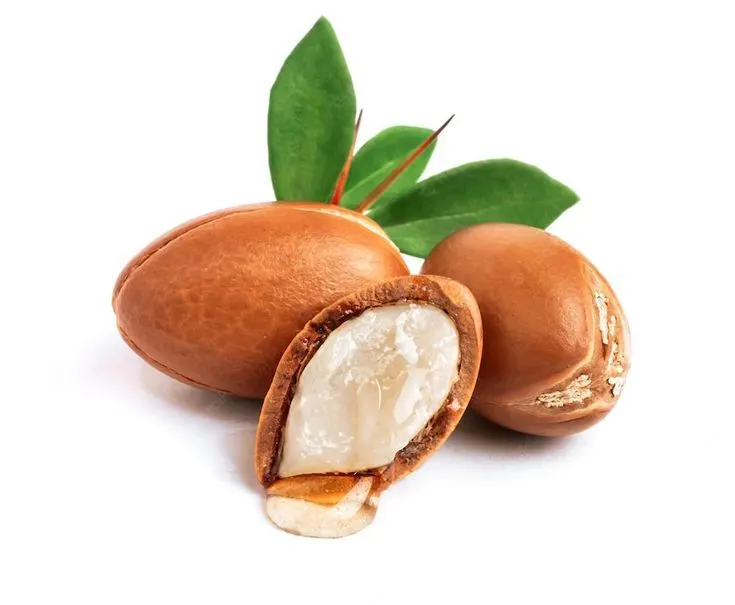Argan oil, often referred to as “liquid gold,” has gained immense popularity over recent years. Known for its versatility in skincare, haircare, and even culinary uses, this precious oil is more than just a beauty product. Let’s delve into the rich history and origins of argan oil, explore its benefits, and understand why it’s revered as “liquid gold.
What is argan oil?
Argan oil is a plant-based oil extracted from the kernels of the argan tree (Argania spinosa), native to southwestern Morocco. Moroccan Berber communities have utilized the oil for centuries in cooking, skincare, and traditional medicine. Today, it stands as a key ingredient in numerous luxury beauty products.
The history & origins of argan oil
Ancient Origins
The history of argan oil dates back to the 12th century when it was first used by the Berber people of Morocco. These ancient inhabitants discovered the oil’s many uses, ranging from moisturizing skin and treating hair to soothing wounds. They were the first to extract the oil by hand, using traditional methods passed down through generations.
The Argan Tree
The argan tree thrives in Morocco’s harsh, arid climates. Its fruit yields a nut from which people extract the oil. Producing just one liter of oil requires about 30 kilograms of fruit, making the extraction process labor-intensive and contributing to the oil’s high value.
Characteristics of argan oil
Argan oil boasts a light, non-greasy texture, making it ideal for various applications, including skincare, haircare, and culinary uses. Rich in essential fatty acids, antioxidants, and vitamins A and E, it provides deep nourishment and hydration. The oil has a natural nutty scent and is available in both cosmetic and culinary grades, depending on its intended use.
Key Characteristics:
- Rich in Nutrients: Contains essential fatty acids, antioxidants, and vitamins.
- Non-Greasy Texture: Absorbs easily into the skin and hair.
- Natural Nutty Fragrance: A light, pleasant scent.
- Multi-Purpose: Used in skincare, haircare, and culinary applications.
The advantages of argan oil
Moisturizing Benefits
Argan oil is renowned for its ability to deeply hydrate the skin. The high concentration of vitamin E helps to lock in moisture, making it an ideal solution for dry skin, cracked heels, and rough patches.
Anti-Aging Properties
Packed with antioxidants, argan oil helps combat free radicals, which are responsible for aging and skin damage. It has been shown to reduce the appearance of fine lines and wrinkles, giving the skin a youthful, glowing appearance.
Hair Care
As a natural hair conditioner, argan oil adds shine and smoothness. It helps repair damaged hair, restore elasticity, and reduce frizz, leaving hair soft and manageable.
Culinary Uses
Argan oil is also a popular ingredient in Moroccan cuisine. Its rich, nutty flavor enhances dishes like salads, couscous, and tajines, offering not only taste but also nutritional value.

How argan oil stands out from other oils
Unlike other popular oils such as olive oil or coconut oil, argan oil is more versatile and offers a higher concentration of beneficial nutrients. While olive oil primarily serves culinary purposes and coconut oil is known for moisturizing, argan oil excels in both cosmetic and culinary applications.
Argan Oil vs. Other Oils:
- Olive Oil: Primarily used for cooking, less effective in skincare.
- Coconut Oil: Known for its moisturizing properties but may leave a greasy residue.
- Argan Oil: Lightweight, easily absorbed, and suitable for both cosmetic and culinary uses.
Pricing of argan oil
Due to its labor-intensive production and limited supply, argan oil often carries a premium price. Costs vary based on quality and grade. Cosmetic-grade argan oil typically ranges from $30 to $100 per bottle, while culinary-grade oil is more affordable yet still priced higher than many common oils.
Benefits of argan oil
- Hydrates and Nourishes: Deeply moisturizes both the skin and hair.
- Fights Aging: Reduces fine lines and wrinkles.
- Versatile: Can be used in skincare, haircare, and cooking.
- High-Quality: Cold-pressed argan oil retains its maximum nutrient value.
Quality & originality of argan oil
The extraction method significantly influences argan oil’s quality. Cold-pressed, organic oil retains the most nutrients and remains free from chemicals. Choosing reputable brands ensures authenticity and high quality, maximizing the oil’s benefits.

Customer reviews
Many users of argan oil rave about its effectiveness. Here are some common reviews:
- “I’ve been using argan oil on my hair for months now, and it has transformed the texture—it’s shinier and feels healthier!”
- “Argan oil is my go-to skincare product. It’s gentle on my sensitive skin and helps with dryness and irritation.”
- “I love adding argan oil to my cooking. It enhances the flavor of my dishes and is so healthy.”
My personal opinion
As an AI, I don’t have personal experiences, but based on extensive research and customer feedback, I can confidently say that argan oil is an incredibly versatile and beneficial product. Its historical use and the growing body of positive reviews make it clear that argan oil is a must-have for anyone looking to improve their skincare, haircare, and even cooking routine.
Conclusion
Argan oil, aptly named “liquid gold,” transcends being a mere trend. Its rich history, diverse benefits, and versatility affirm its esteemed status. Whether for skincare, haircare, or culinary uses, argan oil consistently proves its worth. If you haven’t yet embraced this ancient elixir, now is the perfect time to experience its myriad benefits firsthand.
If you haven’t yet incorporated this ancient wonder into your routine, now is the time to try it and experience the many benefits for yourself.

